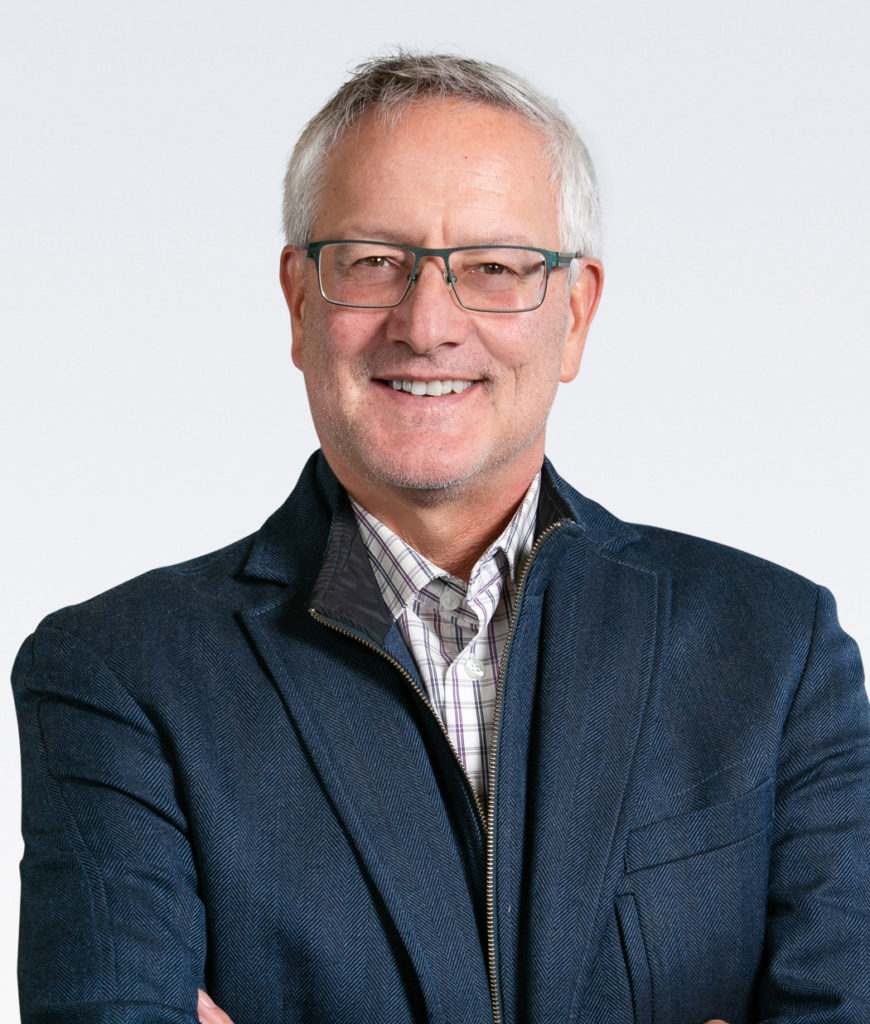Quebec’s spring legislative session could be characterized by one word: courage – according to Premier François Legault. The National Assembly rose for the summer on June 6, following months of turbulence due to economic uncertainty triggered by the Trump administration’s tariffs threats and a challenging global economic environment. Much like the rest of Canada, Quebec’s leaders were primarily focused on protecting the economy and its key sectors in the face of Trump’s tariff threats, while participating in national conversations about the acceleration of major projects and the elimination of interprovincial trade barriers. Prime Minister Carney’s approach to Canada-U.S. relations and major projects has triggered a notable shift in tone from Premier Legault, who has been increasingly vocal about his support for the federal government’s initiatives and its collaboration with the provinces.
Despite challenging conditions, Quebec’s economy has fared better than some parts of Canada, as highlighted in their budget this past March. The Premier noted that Quebec continues to exceed the national average, with a 2.6% growth in GDP per capita since 2018 compared to a 2.1% decline in the rest of Canada. On the wage front, Quebec has seen an increase of nearly 9% during the same period, compared to only 4.8% elsewhere in Canada. That said, spending in Quebec has remained high, with the government posting a deficit of $13.6 billion in its budgetary projections, a factor that contributed to the province’s recent credit rating downgrade. The government’s investment arm, Invest Québec, reported $4.7 billion in financing for the 2024-2025 fiscal year, $2.7 billion of which was invested in strategic sectors of the Quebec economy.
Premier Legault has reiterated his intention to stay on as leader and to run in the next general election, slated for October 2026, in hope of leading to CAQ to a third consecutive majority government. Premier Legault also indicated that he presently has no plans for a cabinet shuffle, despite several significant shake-ups in the previous session: Ministers Fitzgibbon (Economy, Innovation and Energy) and Caire (Cybersecurity and Digal technology) resigned, and Minister Dube (Health) announced that he will not be seeking re-election in 2026, despite remaining in his role.
Canada-U.S. relations
Quebec’s economy is highly exposed to the negative impacts of tariffs from the United States. Of the top-40 most tariff-exposed cities identified by the Canadian Chamber of Commerce, seven are located in Quebec. For several of Quebec’s key sectors like aluminium, steel, forestry, agri-food, aerospace and pharmaceuticals, the U.S. is one of, if not the primary export market. The latest series of tariffs from the Trump administration came into effect on June 5, and target aluminium and steel. Premier Legault has called the tariffs “completely unjustified” and emphasized that these actions by the U.S. will cause extreme harm to the economy.
The threat of tariffs has prompted a recalibration on several fronts: first and foremost, Quebec’s economic relations with international trade partners, namely Europe, where Quebec has a network of several General delegates and trade advisors. Premier Legault and Economy Minister Christine Fréchette will travel to the Paris Airshow in mid-June, where they hope to engage with European counterparts on shared priorities, like defence and critical minerals. As it relates to interprovincial pipeline projects, the Quebec government has demonstrated limited openness, knowing well the difficult road ahead for social acceptability; however, Premier Legault has reopened the door to a cross-Canada pipeline project through northern Québec, a notable shift from 2021, when the province rejected the GNL Québec project in Saguenay over social acceptability concerns. The Premier also stated that Quebec will increase its exports to other provinces in the coming months. In late May, the CAQ introduced Bill 112, An Act to facilitate the trade of goods and the mobility of labour from the other provinces and the territories of Canada, to implement better recognition of products and worker certifications from other provinces.
Government priorities
Premier Legault indicated that his government will continue to take a “nationalist economic-focused” approach in the next session, and for the following year. Ongoing discussions revolving around economic development, energy projects, and trade diversification will continue to dominate the political agenda. The Premier’s economic development agenda will focus on several key sectors, including: defence (aerospace and maritime), critical minerals and mining, and energy infrastructure. He stated in his closing remarks on June 6 that the CAQ will continue to invest “massively” in these areas, and that the government is currently evaluating “dozens” of projects.
In order to equip Quebec’s economy for these major projects, the government put forward Bill 69, An Act to ensure the responsible governance of energy resources and to amend various legislative provisions, in June 2024. The bill seeks to amend several existing laws and regulations, including the Act respecting the Régie de l’énergie (the “ARE”), as well as grant new responsibilities to the Minister of Economy, Innovation and Energy, and double Hydro-Québec’s production capacity by 2035. Bill 69 was passed under time allocation on June 7, after Minister Frechette and Premier Legault accused the opposition parties of obstruction. Premier Legault stated that this was necessary in order to accelerate the Hydro-Québec’s $200-billion plan to invest in increased electrification capacity, which will include the expansion of capacity at existing dams like La Grande, Manic-Outardes, and Churchill Falls, as well as the potential construction of new facilities (Gull Island), and wind projects. Legault has also indicated that he will seek federal support for a transmission line from Newfoundland to Quebec.
On the health file, Premier Legault has described entering “crunch time” in advancing structural reforms, with a focus on labour negotiations. Talks with the Fédération des médecins spécialistes du Québec and the Fédération des médecins omnipraticiens du Québec are expected to intensify in the coming months, as the government works to revise the physician remuneration model. Legault has described this as a difficult but necessary battle and emphasized that the most important outcome is reaching agreements. With the pandemic having prevented major negotiations during the CAQ’s first mandate, the government now seems determined to move forward with this long-standing priority, which will be to watch closely in the months ahead.
Polls
As the CAQ’s support continues to slip and with only 16 months remaining before the next election, Premier Legault is facing renewed calls to step down or call an early vote. Interim Liberal leader Marc Tanguay has openly called for his resignation, but the PLQ will have a new leader as of June 15, arguing that Quebec “can’t afford another year” under his leadership. Meanwhile, Parti Québécois leader Paul St-Pierre-Plamondon is encouraging the Premier to consider calling an early election. The Parti Québécois continues to lead the polls with 33% of the projected vote, followed by the CAQ at 21% and the PLQ closely behind at 20%.

By-election in Arthabaska
Meanwhile, the by-election in Arthabaska, triggered by the resignation of former CAQ MNA Éric Lefebvre, has yet to be called by the government. The riding, held by the CAQ since 2012, is coveted by Éric Duhaime, leader of the Québec Conservative Party, while the Parti Québécois has officially nominated Alex Boissonneault, a former Radio-Canada journalist. The race is shaping up as a tight three-way contest, with the PQ currently leading in the polls. The by-election must be called by September 18, 2025.

PLQ leadership
Things have been heating up for the Liberal Party of Québec, with only a few days left of the leadership race. Front-runner Pablo Rodriguez, former federal minister under the Trudeau government, came under heavy criticism during the last debate, largely due to his political record. Meanwhile, Karl Blackburn, former head of the Conseil du patronat du Québec, faced backlash last week after commissioning a poll among PLQ members on the outcome of the leadership race. Opponents argued the move lacked transparency, as it was not clearly disclosed that the poll had been commissioned by his own campaign.
Quebec Liberal Party members will begin voting on June 9, with the leadership convention taking place on June 14 in Québec City. The outcome remains difficult to predict due to the party’s weighted system: each riding is assigned 3,000 points, including 1,000 reserved for members under 25 years old. The candidate who secures more than 50 percent of the total 375,000 points wins. If no one reaches that threshold, a second round will be held between the top two candidates.
Québec solidaire
This session was particularly tumultuous for Québec solidaire. The party faced internal unrest and the departure of its co-leader Gabriel Nadeau-Dubois. It also lost its footing in the Terrebonne by-election, where candidate Nadia Caron later criticized the party’s lack of support and subsequently joined the Parti Québécois. Adding to the party’s challenges, MNA Christine Labrie announced she would not be seeking re-election in 2026, raising questions about how Québec solidaire will navigate the next 16 months ahead of the election.
Navigating challenges and priorities ahead
The Coalition Avenir Québec continued to deal with challenges related to health sector reform and negotiations with unions, immigration, national identity and language, and energy system reform over the course of the spring session.
Over the next 16 months, the topic of social acceptability will also remain top of mind as the CAQ continues to face pushback on major projects from opposition parties and local stakeholders. During the spring session, the government moved to expropriate land in Blainville to expand the Stablex hazardous waste site, echoing last year’s environmental concerns surrounding the Northvolt battery plant.
Alongside these challenges, Legault has committed to increasing interprovincial exports, eliminating trade barriers and labor mobility through Bill 112, which would allow for automatic recognition of goods between provinces. However, tensions could emerge as the government will have to balance these ambitions with a motion unanimously adopted in April reaffirming its right to protect its economic, cultural, and linguistic priorities based on its distinct social values.
Progress of bills
List of legislation passed (government bills):
- PL-69: An Act to ensure the responsible governance of energy resources and to amend various legislative provisions
- PL-82: An Act respecting the national digital identity and amending other provisions
- PL-83: An Act to foster the practice of medicine in the public health and social services network
- PL-84: An Act respecting integration into the Québec nation
- PL-92: An Act to amend various provisions mainly with respect to the financial sector
- PL-95: An Act to promote equity in access to subsidized educational childcare services provided by permit holders
- PL-97: An Act mainly to modernize the forest regime
- PL-109: An Act to affirm the cultural sovereignty of Québec and to enact the Act respecting the discoverability of French-language cultural content in the digital environment
List of legislation introduced and carried over to next session (government bills):
- PL-112: An Act to facilitate the trade of goods and the mobility of labour from the other provinces and the territories of Canada
- PL-106: An Act mainly to establish the collective responsibility and the accountability of physicians with respect to improvement of access to medical services
Insights for this piece provided by Daniel Bernier, Delaney Cullinan, and Victoria LaChance.


